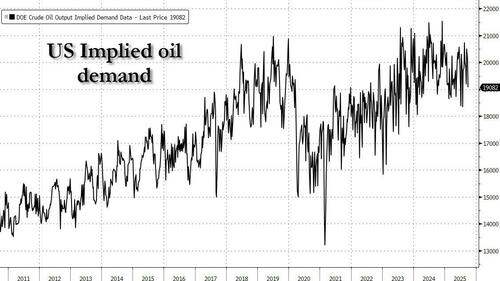By Tsvetana Paraskova of OilPrice.com
Contrary to earlier expectations, global demand for fuel oil has jumped the most since 2019 as longer routes to avoid the Houthi threat around the Red Sea and the surge in shadow fleet numbers have contributed to higher fuel oil use in the shipping industry, analysts tell Reuters.
Ship owners have installed the so-called scrubbers to reduce emissions from fuel oil use instead of significantly boosting the use of marine gasoil and low-sulfur fuel oil (LSFO), according to industry experts.
In the past two years, the geopolitical situation has also contributed to higher fuel oil demand. Vessels began avoiding the Red Sea at the end of 2023 amid Houthi attacks on commercial shipping. That has made the voyage via the Cape of Good Hope in Africa much longer and requires higher fuel oil volumes per trip.
Moreover, a growing number of very old vessels are joining the so-called shadow fleet to transport Russian, Iranian, and Venezuelan oil and oil products. These tankers are inefficient and burn higher fuel oil volumes.
The shadow fleet has expanded significantly since 2023 as the West banned Russian oil imports unless priced below a price cap.
The shadow fleet accounts for about 17% of all in-service oil tankers in the ocean today, according to the research firm S&P Global Market Intelligence. The average age of the shadow vessels is around 20 years, compared with 13 years for the overall global oil fleet.
“Many of these vessels will be proverbial rust buckets that are more than 15 and, in some cases, even older than 20 years,” Eugene Lindell at consultancy FGE told Reuters.
These oil ships are less fuel-efficient and travel on long-haul routes, which further boosts their fuel oil consumption, Lindell added.
Additionally, the major Middle Eastern oil producers, led by Saudi Arabia, use and import growing volumes of fuel oil, including from Russia, as they burn oil for power generation and look to free more of their crude output for exports.
Loading recommendations...
